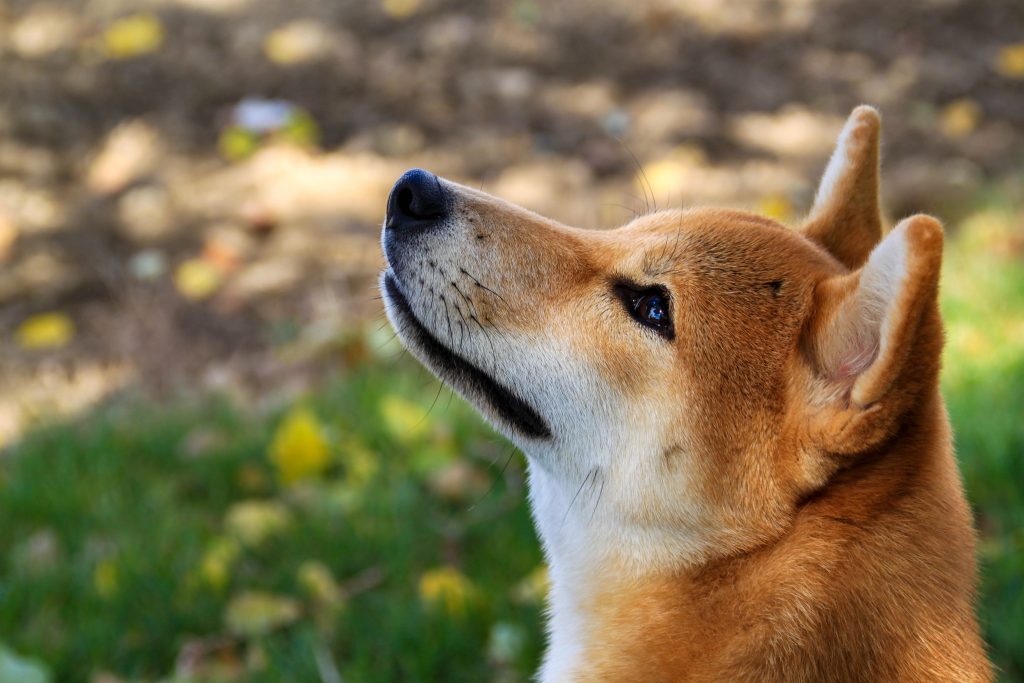Welcoming a Shiba Inu into your home is an exciting journey marked by the companionship of a spirited and intelligent canine friend. Known for their vibrant personality, fox-like appearance, and loyalty, Shiba Inus are a unique breed that deserves special attention when it comes to their nutrition. The foundation of their well-being lies in the quality of their diet, making it essential for Shiba Inu owners to navigate the diverse world of dog food to find the best match for their furry friend’s needs.
Shiba Inus are not only known for their charming looks but also for their high energy levels and independent nature. As responsible pet owners, providing them with a well-balanced and nutritious diet becomes a paramount responsibility. In this comprehensive guide, we will delve into the intricacies of selecting the best dog food for Shiba Inu, exploring the specific dietary requirements unique to this breed, understanding common health concerns, and identifying the key ingredients that contribute to their overall health and vitality.
Embarking on this journey involves more than just picking a bag of dog food off the shelf. It requires a nuanced understanding of your Shiba Inu’s individual needs, taking into account factors such as age, size, and activity level. As we navigate the world of Shiba Inu nutrition, we will uncover the importance of protein, fats, carbohydrates, and other essential nutrients that play a crucial role in supporting their energetic lifestyle.
Beyond the nutritional aspect, we’ll delve into the potential health concerns that Shiba Inus may face, such as food allergies, joint health issues, and dental care. Recognizing these concerns will guide us in choosing a dog food brand that not only meets their dietary needs but also addresses specific health considerations.
Armed with this knowledge, you’ll be better equipped to make informed decisions about the best dog food for your Shiba Inu, ensuring they receive the nutrition necessary for a vibrant and healthy life. Remember, the journey to finding the perfect dog food is a dynamic one, requiring ongoing attention to your Shiba Inu’s evolving needs as they grow and age. So, let’s embark on this journey together, discovering the key to nourishing the heart and soul of your Shiba Inu companion.
Understanding Shiba Inu Dietary Requirements:
Shiba Inus are a distinctive breed that requires a carefully tailored diet to meet their specific nutritional needs. As a medium-sized dog with a lively disposition, it’s crucial to provide them with a diet that supports their energy levels, maintains a healthy weight, and addresses potential health concerns. Here’s a breakdown of key dietary requirements for Shiba Inus:
Protein Content:
Shiba Inus are known for their muscular build and active lifestyle, necessitating a diet rich in high-quality protein. Opt for dog foods that list real meat, such as chicken, beef, or fish, as the primary ingredient. Protein is essential for muscle development, energy, and overall well-being.
Fat Content:
Healthy fats play a crucial role in a Shiba Inu’s diet, contributing to skin and coat health, as well as supporting cognitive function. Look for dog foods that contain sources of omega-3 and omega-6 fatty acids, commonly found in ingredients like fish oil.
Carbohydrates:
While Shiba Inus don’t require as many carbohydrates as some other breeds, they still need a moderate amount to fuel their energetic activities. Choose dog foods that incorporate whole grains like brown rice or barley over fillers such as corn, promoting sustained energy levels.
Avoid Common Allergens:
Shiba Inus can be sensitive to certain ingredients, making it essential to avoid common allergens like soy, wheat, and artificial additives. Opt for dog foods with limited ingredient lists and those free from unnecessary fillers that might trigger allergic reactions.
Nutrient Balance:
Ensuring a well-balanced diet is crucial for Shiba Inus. Look for dog foods that provide a comprehensive mix of essential nutrients, including vitamins and minerals. This balanced nutrition is vital for supporting the immune system, preventing nutritional deficiencies, and promoting overall health.
Common Health Concerns for Shiba Inus:
While Shiba Inus are generally robust and healthy dogs, they, like any breed, may be prone to specific health concerns. Being aware of these common issues allows for proactive care and helps maintain the overall well-being of your Shiba Inu. Here are some prevalent health concerns associated with this spirited breed:
Food Allergies:
Shiba Inus can be susceptible to food allergies, which may manifest as itching, skin irritations, digestive problems, or ear infections. To address this concern, select dog foods with limited ingredients and avoid common allergens such as soy, wheat, and artificial additives. Regular monitoring for signs of allergies is crucial to identifying and managing potential dietary sensitivities.
Hip Dysplasia:
Hip dysplasia is a genetic condition that can affect Shiba Inus. This condition occurs when the hip joint doesn’t develop properly, leading to arthritis and discomfort. Choosing a dog food that includes joint-supportive ingredients like glucosamine and chondroitin can aid in maintaining joint health and reducing the risk of hip dysplasia.
Patellar Luxation:
Shiba Inus may be prone to patellar luxation, a condition where the kneecap dislocates from its normal position. While this is a hereditary concern, maintaining a healthy weight through a balanced diet and regular exercise can help mitigate the risk.
Dental Issues:
Dental health is a common concern for many dog breeds, including Shiba Inus. Their small size and crowded teeth may contribute to plaque and tartar buildup. Choosing a dog food with a crunchy texture or incorporating dental treats can assist in maintaining oral hygiene and preventing dental issues.
Allergic Dermatitis:
Shiba Inus may be prone to skin allergies, often triggered by environmental factors or certain ingredients in their food. Providing a balanced diet with high-quality proteins and essential fatty acids can contribute to healthy skin and coat, reducing the risk of allergic dermatitis.
Eye Conditions:
Some Shiba Inus may be predisposed to certain eye conditions, including cataracts and progressive retinal atrophy. While not entirely preventable through diet, a nutrient-rich diet containing antioxidants may support overall eye health.
Selecting the right dog food brand is a crucial aspect of ensuring the health and well-being of your Shiba Inu. With numerous options available, it’s essential to choose a brand that aligns with the specific dietary requirements and potential health concerns of this unique breed. Here are some recommended dog food brands known for providing quality nutrition suitable for Shiba Inus:
Hill’s Science Diet:
Key Features:
Offers a range of formulas tailored to different life stages and specific needs.
Prioritizes high-quality ingredients, including real meat as the primary protein source.
Contains essential nutrients for overall health, including antioxidants for immune support.
Blue Buffalo Wilderness:
Key Features:
Grain-free options suitable for Shiba Inus with food sensitivities.
High-protein formulas that mirror a dog’s ancestral diet.
Rich in omega-3 and omega-6 fatty acids for skin and coat health.
Wellness CORE:
Key Features:
Focuses on high-protein, grain-free recipes suitable for Shiba Inus’ energetic lifestyle.
Limited ingredient options for dogs with sensitivities.
Contains a blend of antioxidants, probiotics, and essential nutrients for overall health.
Royal Canin Shiba Inu Breed Specific:
Key Features:
Tailored specifically for Shiba Inus, addressing their unique nutritional needs.
Includes ingredients to support skin and coat health.
Kibble designed for the Shiba Inu’s jaw shape and size.
Nutro Ultra Grain-Free:
Key Features:
Grain-free option suitable for dogs with food sensitivities.
Features a blend of superfoods for additional nutritional benefits.
Focuses on high-quality proteins for muscle development.
Merrick Grain-Free Dry Dog Food:
Key Features:
Grain-free recipes suitable for dogs with sensitivities.
Real meat as the first ingredient, with no artificial additives.
Includes a mix of vitamins and minerals for overall health.
Conclusion:
In the journey of caring for your Shiba Inu, choosing the right dog food is a fundamental step towards ensuring their health, happiness, and longevity. As we explored the intricacies of Shiba Inu dietary requirements, common health concerns, and recommended dog food brands, it becomes evident that a thoughtful approach to nutrition is essential for this spirited breed.
Understanding the unique dietary needs of Shiba Inus involves prioritizing high-quality proteins, healthy fats, and a balanced mix of essential nutrients. Opting for dog foods that cater to their energetic lifestyle, support joint health, and address potential allergies is key to promoting their overall well-being.
Common health concerns such as food allergies, joint issues, and dental health were also discussed, emphasizing the importance of proactive care and choosing dog food brands that contribute to a Shiba Inu’s specific health requirements.
The recommended dog food brands provided a starting point for pet owners, offering options that prioritize quality ingredients, tailored nutrition, and formulas designed to meet the needs of Shiba Inus.
In conclusion, the journey of selecting the best dog food for your Shiba Inu is ongoing. Regular monitoring of their health, behavior, and response to their diet, coupled with veterinary guidance, will ensure that their nutritional needs are continually met. Remember that each Shiba Inu is unique, and adjustments to their diet may be necessary over time.
FAQs
Q1: What is the best type of protein for Shiba Inus?
A1: The best protein for Shiba Inus comes from high-quality animal sources like chicken, beef, or fish. Look for dog foods where real meat is listed as the primary ingredient.
Q2: How often should I feed my Shiba Inu?
A2: Adult Shiba Inus are typically fed twice a day. Puppies may require more frequent meals, with the exact amount depending on their age, weight, and activity level.
Q3: Are Shiba Inus prone to food allergies?
A3: Yes, Shiba Inus can be susceptible to food allergies. Common allergens include soy, wheat, and artificial additives. It’s essential to monitor for signs of allergies and choose dog foods with limited ingredients.
Q4: Should I choose grain-free dog food for my Shiba Inu?
A4: While some Shiba Inus may thrive on grain-free diets, it’s not necessary for all. Grain-free options can be beneficial for dogs with food sensitivities, but consult with your veterinarian to determine the best choice for your Shiba Inu.
Q5: How can I maintain my Shiba Inu’s dental health?
A5: Choose dog foods with a crunchy texture to promote dental health. Additionally, provide dental treats or engage in regular teeth-cleaning routines recommended by your veterinarian.
Q6: Is a breed-specific dog food necessary for Shiba Inus?
A6: While not strictly necessary, breed-specific dog foods, such as those designed for Shiba Inus, can address their unique nutritional needs. Always check the ingredient list to ensure it aligns with your Shiba Inu’s requirements.
Q7: Can I switch my Shiba Inu’s diet, and how should I do it?
A7: You can switch your Shiba Inu’s diet, but it’s best done gradually to avoid digestive upset. Mix the new food with the old, gradually increasing the ratio of the new food over 7-10 days.
Q8: What are the signs of a well-balanced diet for a Shiba Inu?
A8: A shiny coat, maintained weight, high energy levels, and overall good health are signs of a well-balanced diet. Regular veterinary check-ups can also help assess the effectiveness of the diet.
Q9: How can I tell if my Shiba Inu is overweight?
A9: Monitor your Shiba Inu’s body condition by feeling their ribs. If you can easily feel the ribs without excessive fat covering, they are likely at a healthy weight. Consult with your veterinarian for guidance on weight management.
Q10: Are there any human foods that Shiba Inus should avoid?
A10: Yes, some human foods are toxic to dogs, including Shiba Inus. Avoid feeding them chocolate, onions, garlic, grapes, raisins, and foods containing xylitol. Always check with your veterinarian if unsure about the safety of a particular food.

Jane Doe, a veterinarian with over 10 years of experience, combines her deep knowledge of animal health with a passion for pet welfare at PetsPonder.com. With a DVM degree and a commitment to the latest in veterinary science, Jane Doe offers reliable, compassionate advice to help pet owners make informed decisions for their furry companions.

Leave a Reply